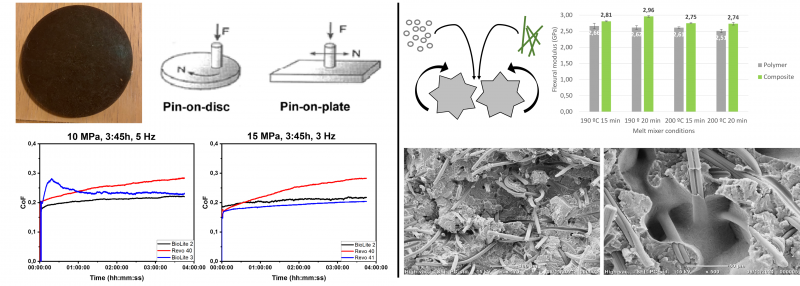Progress report - ESR 5: Lucas Maximilian Kneißl
date: May 07, 2022
category: News
Tribological performance and applications of multifunctional biobased polymer composites
The need for replacing fossil-based materials in the automotive industry with more sustainable solutions becomes an increasing need. Regulations demand sustainability in manufacturing and the final product, while striving towards weight reduction and multifunctionality for improved performance, especially for electric vehicles. Therefore, research in the field of natural-based thermoplastic polymer composites for tribological car applications will be conducted, as they are promising candidates for replacing fossil-based composites while being able to present multifunctional aspects. Within the last year, two projects were carried out, one dealing with the evaluation of commercially available polypropylene (PP) composites, reinforced with varying amounts of hemp fibers, the other concerning polyoxymethylene (POM) containing cellulose fibers. Regarding the PP composite, studies were conducted using two different tribo-test configurations with variations of load, time, and contact pressure. Results from pin-on-plate experiments showed that the coefficient of friction is only slightly affected by the fiber content, while the wear coefficient presented a trend towards a reduction with increasing fiber content. Furthermore, using recycled PP as matrix showed wear coefficients almost an order of magnitude lower compared to virgin PP at same fiber loading. The POM composites produced showed homogeneous distribution of fibers but weak fiber-matrix interface. Nevertheless, an improvement of 13% in flexural modulus in the best case was obtained for 10% fiber content. Currently POM/nanocellulose composites are produced, further characterizations on these will be done. Future work on POM showing a certain level of functionality will be carried out as well as more studies regarding the commercial materials.




